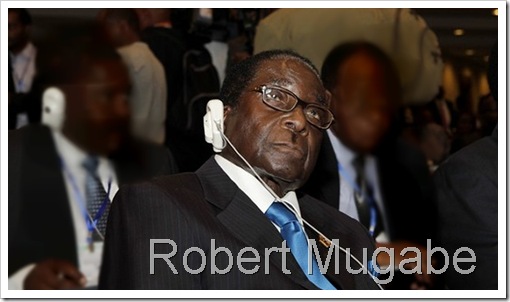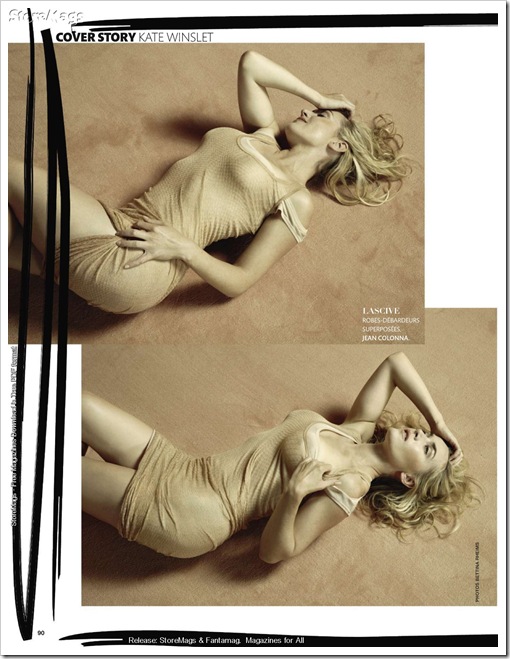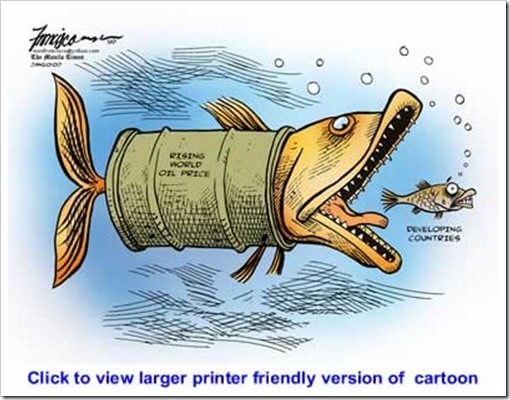Peter Godwin was born and raised in Zimbabwe. He studied Law at Cambridge University, and International Relations at Oxford. He is an award-winning foreign correspondent, author, documentary-maker and screenwriter.
After practising human rights law in Zimbabwe, he became a war correspondent, and has reported on war from over 60 countries, including in Angola, Mozambique, Namibia, Zimbabwe, Uganda, Somalia, Congo, Ivory Coast, Sudan, Bosnia, Kosovo, Kashmir and during the last years of apartheid South Africa.
He served as East European correspondent and diplomatic correspondent for the London Sunday Times, and chief correspondent for BBC television’s flagship foreign affairs program, Assignment – making documentaries from such places as Cuba, Panama, Indonesia, Pakistan, Spain, Northern Ireland, the Philippines, Czechoslovakia, Romania, Bulgaria, the Baltics, and the Balkans as it descended into war.
At great personal risk, Godwin returns secretly to the country he knows so well. He visits the torture bases, the burning villages, the death squads, the opposition leaders in hiding, the last white farmers, the churchmen and diplomats putting their own lives on the line to stop the carnage.
Threaded through with personal history, The Fear: The Last Days of Robert Mugabe is the brave and astonishing record of a dictatorship gone mad.
Accompanied by his sister, Georgina, Godwin journeys through the ravaged, once-familiar landscape.
They visit the grave of their sister, killed during the civil war. As they pour “lucky bean” seeds from the coral tree in their old garden into the runnels of the letters on her gravestone, they call their mother, now living in exile in faraway London. “Where would you like to be buried when you die?” he asks her. “At home,” she says. “In Africa. Next to your father.”
Told with a brilliant eye for detail and Godwin’s natural storytelling gifts, this is a story framed by personal loss. But, most deeply, it is a moving and stunning account of a people grotesquely altered, laid waste by a raging despot. It is about the astonishing courage and resilience of a people, armed with nothing but a desire to be free.
Leadership editor Robbie Stammers had the pleasure of meeting up with Godwin on his visit to South Africa recently, and had the following questions to ask him:
You have studied Law at Cambridge and International Relations at Oxford – it is an incredibly impressive CV. You could have landed with your bum in the butter in a very cushy job. What made you decide to become a war correspondent, travelling to some of the most violent countries in the world?
My real problem is that I don’t plan ahead. I’ve never been career-minded.
People with whom I grew up have dispersed across the world, so you get used to this constant change and, somehow, that becomes your expectation. And in that sense, planning seems sort of pointless.
I trained as a lawyer, but I mostly read law to appease my father.
When I went back to Zimbabwe originally, it was to finish the fieldwork for a PhD and I ran out of money, so the only thing I was trained to do as such was law. So I started working as a lawyer while I was trying to finish the PhD and didn’t do it for very long – and I don’t think I was very good at it, either. I got bored!
The thing about law is that you see it on television and everyone is in court, but every one minute you’re in court, arguing your case, there is probably an hour of research. I took on a big high-treason case and I did hours of political research on it, which fascinated me.
I then started doing odd pieces of freelance journalism and the London Sunday Times said, “Well, if you want to send that stuff, there is no guarantee we will publish it and we’re not going to pay your expenses. We won’t pay for anything unless we use it.”
I had no expectations, and then I discovered that they had run these pieces and I started writing more and more.
I imagine that increased your confidence?
I enjoyed it. I never went to journalism school or anything. I just learnt on the job and became some sort of “Wiki journalist”.
I found myself ultimately in London, on the foreign desk with a short-term contract.
You become a prisoner of your own resumé insofar as to say, “Look, this guy has been in a war in Africa.” So then I ended up just getting sent wherever, covering conflict.
I did it for a long time – for the Sunday Times and then for the BBC. I must’ve done probably 10 years as a foreign correspondent and then documentaries for the BBC before moving over full-time to books.
You had to contend with two competing legal systems: that of the Rhodesian government and the other of tribal chiefs. Do you think tribal chiefs still play a significant role today in Zimbabwe?
They play a huge role.
Zimbabwe is much more rural than South Africa; and the other thing in Zimbabwe, which to a greater or lesser extent is probably not half as true now as it used to be, is that many urban Zimbabweans have rural homes at the same time.
What’s happening now is that the chiefs are under more and more pressure from Mugabe. He put them on salaries, gives them cars, and then expects them to be agents of political control. If their areas turn against Zanu-PF and Mugabe, then the chiefs will come under enormous pressure and will be changed, if necessary.
So one of the bad things that we have seen happen in the last couple of decades – but in particular, in the last five or 10 years – is the chiefs coming under Zanu-PF’s control.
It has been noted that Zimbabwe is the most educated country on the continent. If you consider Zimbabweans to be a very highly educated country, how has Mugabe managed to secure such an iron fist over his people, and why have they not had the ability to fight the oppressor?
In some ways, the more educated you are, the more options you have to get out.
The fact is, with no education whatsoever, you may ultimately resist more; but if you have two degrees and a job offer is on your desk, you can just bugger off.
So Zimbabweans have left in enormous numbers. Black Zimbabweans in their millions. So that’s been one of the problems – the best and brightest have been skimmed off and have gone elsewhere into the Diaspora.
The other thing is, Zimbabweans have actually resisted – peacefully. The opposition movement (Movement for Democratic Change), from its very formation in early 2000, was a platform that was dedicated to non-violence, and it’s kept that up. It hasn’t been given nearly enough credit for that.
However, it is up against an army and police force that are extremely well established. These aren’t people into whose gun barrels you’re going to put carnations. Trust me, they are not people who are going to be using just teargas. They are pretty hardcore.
I think that there has been reluctance on the part of the opposition leadership to push young people into the guns of these oppressors.
You could argue that we’ve actually lost far more people over the last 10 years to disease and HIV and a collapse of health and agriculture than we might have done in a short, sharp revolution, but that is difficult to say.
Has the brain drain in Zimbabwe passed a point of no return?
I think that it’s hanging by a thread.
At the moment in Zimbabwe, there is still a cultural memory of how things should work, and I think that is related to the education point.
You get this tragic situation where, if you finished school 10 years ago, you’d be 28 now. So anyone beyond their mid-20s is probably still very well educated, but people under that age may have very little, since the education system has collapsed. You therefore have these contiguous generations where one is very well educated and the other is not at all educated.
We now have kids of 15 years of age who cannot even read or write, and I think that’s the worry – that you lose the cultural memory of efficiency and how it all works.
People can’t even remember how a good economy once functioned. You have to start from scratch.
Since last year, with the banishment of the Zimbabwe dollar, and everything turning into the so-called Government of National Unity, there’s been some improvement, mostly for the upper middle-classes. However, the ordinary folk still struggle to source US dollars, so their lives haven’t changed that much.
I think that the law of entropy applies here, where the more complicated the organism, the more likely it is to go wrong.
Zimbabwe has always been a smaller and simpler place than South Africa. The economy is less complex and it can probably be fixed quicker with relatively less capital.
So I do honestly think that if democracy – real democracy, not the fudge we have at the moment – were restored in Zimbabwe, much money would go in and I think you could fix it astonishingly quickly.
Whether you could still do that in five years, I don’t know. I think if it were started quickly, you could just snatch it back; but the longer it’s delayed, the more difficult it gets.
It is very sad. I have travelled to many places over the years and, after visiting Zimbabwe in 1997, I realised one of the most beautiful places on earth is right on our doorstep.
An astonishing country – and the truth is, it’s one of the reasons that I keep writing about it.
The point is that Zimbabwe is greater than the sum of its parts. It’s more important than just being viewed as a small landlocked country. In many ways, it’s become totemic. It is symbolic of Africa’s hopes and fears – continentally.
At one point, it was the most advanced country with the highest standards of living. People would always point to it as an example of “See what Africa can do and what it can achieve”, and now it’s one of the worst countries.
It has become a universal story, with a Shakespearean plot line.
There is something about the place – it affects people more than most other countries.
You must have a file bigger than a telephone directory on Mugabe’s desk, considering your books – starting with Mukiwa, to the current The Fear.
I’m not sure. (laughs) They are much more sensitive about daily newspapers, radio and TV footage, though, and I don’t think they’re great readers of books. I think, in general, they don’t see books as much of a threat.
But since The Fear was published, the ripple effect in other countries has been enormous, particularly in South Africa, where people said: “Oh, my God. This is happening on our borders!”
They are gobsmacked and ashamed that they haven’t given the situation more attention because they’ve become anaesthetised to it in a way. Then, suddenly, if you put it all together in one book, it has a real emotional impact.
You may not reach tens of millions of people, but the people you do reach become activists in a way. It can really galvanise them into doing something.
How did you manage to return secretly time and again and interview the key people you did for The Fear?
It was no great cloak and dagger thing, but there are places and ways to get in.
After years in war-torn areas, you can judge how and when a political climate goes up and down. There are times when the police are everywhere and other times when they are literally looking elsewhere and are not that bothered.
In some points, it was a very scary place to be in and, indeed, I had some near misses.
I think, certainly, having been born and having grown up in Zimbabwe helps you to fit in.
My journalistic background taught me how to blend into different environments. For example, when I was on the white farms, I made sure I was dressed to look just like a farmer; and when I was in the hospitals, I dressed consistently with people who might routinely be there.
Your sister, Georgina, was with you. I imagine that by what I’ve read, she is a broadcaster and a writer in her own right, who was banned from Zimbabwe. If everything went according to plan and the winds of change sweep through Zimbabwe, would you and your sister return to live there?
The problem is, the longer you stay out, the more you do get integrated into your other life.
My kids were born in America and London and my wife edits Marie Claire magazine in New York, so there would be nothing really as an equivalent job for her.
I think Georgina may be very tempted to go back and I’m sure she could get a good job in Zimbabwe.
I would probably spend a big chunk of every year there, but whether I could move lock, stock and barrel immediately back is a different question.
I think I’d be in a situation where I would spend six months a year there and then commute the rest of the time.
What are your thoughts on the current dilemma facing the country? Just last month, Mugabe told his so-called Prime Minister of the Government of Unity Morgan Tsvangirai that he had unilaterally appointed all 10 provincial governors. What now?
This Global Political Agreement has been breached by Zanu-PF in major ways, all the way along.
Most importantly, the electronic media is still completely dominated by Zanu-PF, as are the police and the army. All these many breaches, any one of which should be enough for the MDC to pull out.
And the process of public consultation, nationally – with town hall meetings and meetings in the countryside to decide what should go into a new constitution draft – was also deeply flawed.
In fact, what’s been happening, is Mugabe’s people have been breaking up these get-togethers where the people are critical of Zanu-PF. They get beaten up and intimidated. So that process of consultation has been a joke. It’s been a disaster.
Mugabe said that they would have a referendum on a new Constitution early this year, and if the answer was a resounding “yes” from the public, then they would have elections in June under the new Constitution; and if they vote “no”, they would still have elections in June, but under the old Constitution.
But they basically have the same underlying conditions that they had in the 2008 elections. The dollar might have gone, but Mugabe is still in charge of the forces of intimidation.
The chance of having a free and fair election under the conditions I’ve described is infinitely small.
One thing that is necessary before you go anywhere near the next election in Zimbabwe, is to completely reform the voters’ roll, which is a joke. There are thousands of voters who are over 100 years old in a country that has one of the lowest lifespan averages in the world – I don’t think so.
There are ghost voters: almost a third of the registered voters are actually dead! Others are infants.
So the MDC is faced with this terrible conundrum, which is that either it can pull out now and just bring the whole ‘unity’ government down and Mugabe would go it alone, or it can stay with it through the constitutional vote and into the next elections and almost certainly lose because of fraud and intimidation – even if the MDC is the most popular party.
My biggest worry now is the diamonds discovered in Chiadzwa. This has effectively given Mugabe a new lease on his political life. It has changed everything.
Diamonds in Chiadzwa were discovered in 2006 and started being mined by freelancers until about 2008. Then Mugabe’s people stepped in and now the Chiadzwa diamonds are the exclusive domain of Mugabe and the military. So, suddenly, this huge extra amount of money comes flowing in.
Zimbabwe was a kleptocracy, but even for the corrupt elite, there is not much left to steal in a full-blown failed state, when everything
has collapsed.
The farms, the mines and businesses eventually run out of money and the economy just gets smaller and smaller.
One would sometimes hope in those situations that that was where you would find the solution, with just no one making money anymore – but then the diamonds changed the whole dynamic.
It’s depressing. The timing of the diamond finds is extremely demoralising – it has refinanced Mugabe’s regime, made them more determined to cling to power.
This may sound like a rather juvenile question, but it is one that has come up for years at dinner parties. People argue that you do not want to make a martyr out of him, but why has no one assassinated Mugabe yet?
Mugabe has pretty good security, and the concern there is that if your method of changing power is through assassination, it tends to create a knock-on effect.
Also, the people in Zimbabwe are relatively pacifistic.
There was apparently a very early attempt by a chef, who put ground glass into Mugabe’s food in the ‘80s, but I don’t think that was political – it was some bizarre witchcraft thing.
Mugabe alluded to it once, but other than that, nothing that we know of.
Do you think many of the Zimbabwean exiles are in denial about what goes on at home?
I think that most of the black Diaspora has been aware of it because many of them have had relatives who had been tortured as well
as threatened.
It depends on when you left. Some of the whites who left a long time ago have decoupled and don’t pay daily attention to what is happening in Zimbabwe.
It also depends where people are with their own lives. Some people have stopped being exiles and ‘become’ South Africans or whatever. Their identities have changed.
For those who still try to keep a finger on the pulse, there is still much detail they may not know about which is contained in The Fear, and it has much more power when it is all laid out in literary terms in one chunk. It shocks them.
You have been involved in bringing so much attention to the atrocities happening in your homeland. Is there ever going to be a place for Peter Godwin to get involved politically, considering your history with your own country?
No, I think that is funny, as I have been asked that before.
I’m not a politician, but I think writers have real roles to play in these situations. They can bear witness, and help expose the terrible truth to conscientise people.
We have different roles in society, and writers have a really important one – particularly in unfree societies.
This is what I did after the 2008 elections. I felt that if I could contribute in some small way toward a transition to real democracy, then that would be reward enough.
When you returned at the time of the 2008 elections, to “dance on the political grain of Mugabe”, were you full of hope at the time?
Oh, yes, there was a period of about two weeks where we had seen the raw data and realised the huge extent of the turn against Mugabe.
There was much negotiation behind closed doors. Specifically with some of the Western diplomats helping to put together an exit package from Mugabe – amnesty and financial guarantees etc. – and it looked like it was really going to happen, that he would stand down.
Of course, Harare was pulsing with rumours and we all thought that there was a really good chance.
I think Mugabe was feeling his age and his wife, Grace, was saying: “It’s enough.” Then Mugabe had meetings with the generals and decided to go another way altogether.
For that brief window, though, it looked like change was going to happen.
But political parties that are born of liberation wars, and become the government, can be particularly stubborn about ceding power. They can be quite Messianic – believing they have a right to continue in power indefinitely.
In South Africa, you are on your fourth president, but Zimbabwe is still on its first.
Mugabe is so associated with power, and the party would be very vulnerable without him. He has painted himself into this corner, as he never allowed a successor to be groomed – such is the hubris of the dictator.
I don’t think that Mugabe has been bullied or controlled, but I do think that he’s not hands-on in the day-to-day running of the country. He has always delegated, that’s always been a style. He’s never been a hands-on guy in terms of how it’s done.
What is Peter Godwin’s definition of a good leader?
If you want to be a good leader, we all know the obvious things one needs, but I think you also have to have empathy. A good leader needs the ability to try and see things from other people’s point of view. You need a certain amount of empathy before they are able to feel compassion – and Mugabe has shown no compassion whatsoever to his own people.
When more and more power is concentrated in one man, such as Mugabe, the more difficult it is to change his own world view. He becomes even more authoritarian.
He reacts badly to criticism; and if people criticise him, they get taken out or squeezed out.
In that situation, people around you only tell you what you want to hear, which affects the impartiality of your input. You start getting more and more unreliable data, and your decisions start to get more and more skewed and bizarre.
For instance, about the famine, when people tried to warn Mugabe that farming had collapsed and that what few crops that had been planted, had failed, one of Mugabe’s ministers said: “No, no, I’ve flown over the country and all looks nice and green.” That’s what Mugabe wants to hear, and his ministers all know you don’t ever bring him bad news.
A real leader needs to get the real input and absorb it with empathy and then act upon it.
Mugabe lives in a totally delusional world now and I think that that is the biggest danger Zimbabwe faces.
Source: Leadership online/by Robbie Stammers










